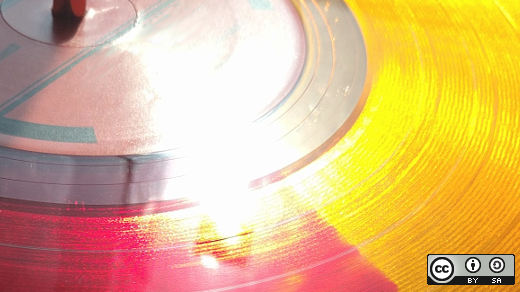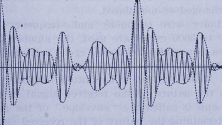Linux offers an abundance of music players; how do you choose which one to use?
Back in June, 2016, I wrote about the apparent passing of my favorite open source music player, Guayadeque. I described the six things I really liked about Guayadeque, and looked at two obvious alternatives: Quod Libet and gmusicbrowser. Since that time, I have been living with gmusicbrowser on my laptop, while continuing to use mpd on the computer attached to the home stereo. Meanwhile, several kind readers have offered other suggestions as to their favorite music players.
With all this input available, I decided to formalize my "six things" list and apply it to a list of candidates for my laptop music playing needs.
6 key features of laptop-based music players
1. Must be configurable to pass the music through unchanged to Alsa.
Why?
- Allows music to switch bit rate and bit depth on the fly.
- Makes it simple to put the signal into an external digital audio converter dedicated to high-fidelity music reproduction, and capable of driving good headphones.
2. Should have a good "smart playlist" feature.
Why?
- Keep the great tunes coming while you're cooking that wonderful dinner.
3. Should not force the user to always interact through playlists.
Why?
- Allows you to double-click on an album and have it play, without requiring a bunch of extra clicks to reorganize the playlist.
4. Should provide a simple approach to cover art.
Why?
- Use the embedded cover art, fall back to cover.jpg (or .png) in the music directory.
- There are so many weird frustrations about cover art in so many players. Who wants to re-curate their music every time they switch a player, just to see the correct album cover when music is playing?
5. Should show the signal level and effective bit rate as the music plays.
Why?
- Because sometimes you want to know!
6. Should present good-to-great overall organization, layout, and performance.
For me, the first item on the list is the critical feature; the rest all enhance the experience to a greater or lesser degree. So I'm going to give the first feature a maximum mark of 5 and the rest 1 each. A good music player will get a 10 based on this scheme.
The evaluation
Guayadeque: 10. It appears to have returned from the dead. Although Guayadeque is not yet back in the latest distro repositories, the developer provides instructions on its installation.
Quod Libet: 7.5. Meets requirements 1, 3, and 6. Smart playlists are possible but require configuration, so I give 0.5 for that. Despite the player's excellent documentation and a plethora of plugins, I haven't been able to make 5 happen. I had to reorganize my music to get cover art working for those "free downloads" we all have, so no points for that either.
Gmusicbrowser: 8. I haven't figured out how to get level meters nor smart playlists. Also, it's so flexible in layout that it almost deserves a 2 for requirement 6 but extreme layout flexibility isn't hugely important to me.
DeaDBeeF: 8.5. Several readers suggested this player, so I thought I would take a look. It meets requirement 1; I was able to select my trusty AudioQuest DragonFly as the ALSA output device in the sound preferences panel. Switching songs of different bit rates and word lengths happened smoothly, and I verified that they were passed through correctly without resampling by looking at /proc/asound/DragonFly/stream0. I could not find a smart playlist feature. The player itself seems somewhat more playlist-oriented than I want, but it's easy enough to select multiple songs (an album or whatever) and put them in the input queue, although the available option seems to be "add," not "replace and play". So 0.5 for that. Cover art worked very well. There is a spectrum analyzer plugin and the starting bit rate is shown. And organization and layout are completely user-adjustable through the design mode. This seems like a competent piece of software.
Audacious: No rating. A reader suggested this player, but in looking at its configuration, I could not satisfy myself that it would meet 1. For example, in Settings > Audio, it requires selecting bit depth. Given that I want to play my music at its native bit depth, I don't think I want this feature. Therefore I didn't continue with its evaluation.
Rhythmbox: No rating. Although this is the default player on my system, it is configured to use Pulse Audio for output and I have never figured out how to get Pulse to pass the music through untouched. Therefore I didn't continue with this evaluation.
So far, then, Guayadeque is still my favorite.
Next time I'll take a closer look at some of the other big names in audio players, such Amarok, Clementine, and Exaile, plus mpd and one or more of its front-end clients.
Anything else I should add to that list?
Finding good music
Lately I've been exploring the Erased Tapes catalog. Besides being the home of one of my favorite artists, Nils Frahm, Erased Tapes seems to specialize in what I might best describe as "atmospheric electronica," although a lot of the work present there also includes acoustic instruments. My latest two acquisitions are both by Ólafur Arnalds and Nils Frahm: Stare and Loon. You can hear samples of both of these at the Erased Tapes store. Also there is a compilation of sample tracks available there for free, called Various Erased Tapes Artists Volume VII. Erased Tapes often offers music in 96kHz/24-bit versions, which I really appreciate. And of course there is no need to install downloading junkware to collect your purchases.







37 Comments